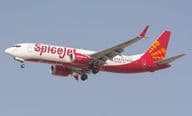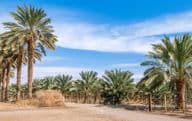Dubai's Big Leap in Urban Transport

Faster Traffic, Longer Life: Dubai's Transportation Revolution
Dubai today is not only a city of skyscrapers, luxury cars, and ultramodern infrastructure, but also a global role model where the development of the transportation system has a tangible impact on people's quality of life and health. According to a recent study, drivers in Dubai take an average of 13.7 minutes to travel 10 kilometers on its roads, surpassing many major cities like Sydney, Montreal, Berlin, Rome, or Milan.
Outstanding global efficiency
According to TomTom Traffic Index 2024, Dubai's transportation efficiency is among the best in the world. The Travel Time Index (TTI) has decreased to 1.23, while the global average hovers around 1.3. This figure means that at peak times, journeys are only 23 percent longer than ideal, congestion-free conditions – whereas in other cities, this ratio often exceeds 50 percent.
Over the past decade, the TTI value has dropped from 1.28 to 1.23 in Dubai, clearly indicating the effectiveness of long-term transportation strategies. The emirate achieved this progress by investing in intelligent transportation systems, road network expansion, and the construction of modern bridges.
The city of safe transportation
In addition to transportation efficiency, safety has also dramatically improved. A study commissioned by the Roads and Transport Authority (RTA) and conducted by McKinsey & Company shows that Dubai's traffic accident mortality rate decreased from 21.9 to 1.8 per 100,000 inhabitants between 2006 and 2024. This represents a more than 90 percent decline, one of the most significant advances globally.
During the period between 2007 and 2024, the rate of fatalities related to traffic accidents decreased by nearly 97 percent. Dubai now surpasses major cities like Milan, Miami, Manchester, Toronto, or Berlin in this regard as well.
Supporting active mobility
The city is not only developing motor vehicle transportation but is also increasingly focusing on active mobility. By promoting pedestrian zones, bike lanes, and public transportation options, more and more people are choosing a healthier lifestyle. This has a beneficial effect not only on individual health but also on the city's air quality.
Lower emissions and cleaner air contribute directly to the increased life expectancy of residents. Shorter commuting times and more transparent transportation reduce daily stress levels, enhancing people's mental well-being.
The Dubai Walk and the future of transportation
The future plans are also noteworthy. The RTA is working on new projects like trackless trams, floating transportation systems, and dense bus rapid transit (BRT) networks. These developments will make urban transportation even more convenient and environmentally friendly.
The "Dubai Walk" initiative deserves special attention, aiming to make the emirate a pedestrian-friendly city year-round. Expanding pedestrian and cycling infrastructure, along with installing heat-resistant pavements and canopies, aims to make commuting without a car comfortable even during the hot summer months.
Strategic road developments
Further development of the road network is also a high priority. The RTA plans to modernize important arteries like Umm Suqeim Street, Al Wasl Street, Jumeirah Street, or Sheikh Zayed Road. These projects not only aim to ease traffic but also strengthen connections between city districts.
The modernization of junctions, the creation of new underpasses and overpasses, and the integration of intelligent traffic control systems help ensure that the city is always one step ahead of the growing population's needs.
Quality of life behind the numbers
As the RTA leader stated: "Every minute saved, accident avoided, and emission reduced contributes to making Dubai a more livable city." These achievements are not just statistics but tangible changes in the residents' everyday lives.
Dubai's example highlights that well-designed and long-term transportation investments do not only serve economic growth but also leave a lasting mark in terms of social well-being and health. In a world where urban stress, traffic jams, and air pollution are daily problems, Dubai offers a new approach to overcoming these challenges through strategic thinking and modern technology.
(Source of the article is based on Dubai's Travel Time Index (TTI).)
If you find any errors on this page, please let us know via email.


